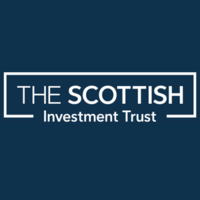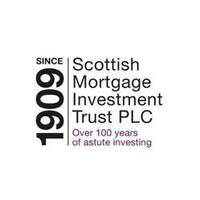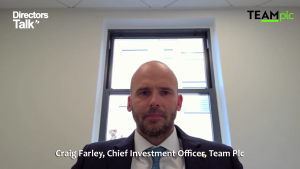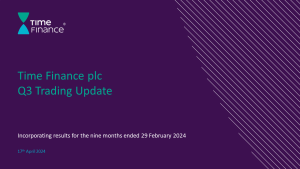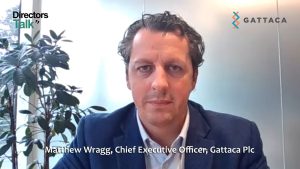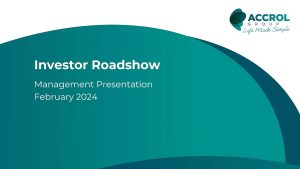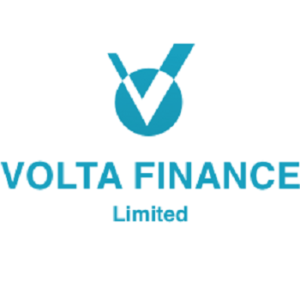The Scottish Investment Trust PLC (LON: SCIN) have today provided results for the six months to 30 April 2019.
· Share price total return -0.5%
· NAV total return -0.1%
· Quarterly dividends of 5.3p per share
· High conviction, global contrarian investment approach
The Scottish Investment Trust PLC invests internationally and is independently managed. Its objective is to provide investors, over the longer term, with above-average returns through a diversified portfolio of international equities and to achieve dividend growth ahead of UK inflation. Today it announces its results for the six months to 30 April 2019. It is categorised as a global trust by the Association of Investment Companies.
Chairman’s Statement
Performance
In the six months to 30 April 2019, the share price total return was -0.5% and the net asset value per share (NAV) total return (with borrowings at market value) was -0.1%.
The Company does not have a formal benchmark but, by way of comparison, the sterling total return of the international MSCI All Country World Index (ACWI) was +7.2% while the UK based MSCI UK All Cap Index total return was +6.0%.
This period proved a less fruitful time for contrarian investors. Our contrarian approach seeks to find an appropriate balance between risk and reward in all our investments, rather than attempt to ride every wave of investment fashion. The Manager believes a prolonged period of excessively cheap money has, once again, encouraged an increasingly reckless attitude to financial risk. This means that insufficient regard is paid to the cyclicality and valuation of earnings from certain companies that are, currently, perceived as immune to the fluctuations of the economic cycle. This enthusiasm is most ardent for ‘disruptive’ technology companies which the Manager sees as most exposed to share price declines when passions cool. Accordingly, these companies are excluded from our portfolio by choice, despite in many cases their large size, as we see greater opportunity in less fashionable areas of the market.
Given our contrarian approach, and as noted in previous communications, we do not expect the Company’s portfolio to match any particular index return over any defined period due to the nature of the portfolio’s composition. Our approach aims to achieve above-average returns over the longer term by which we mean at least five years.
Our goal
I have previously discussed our goal to build an attractive and differentiated investment vehicle for the long term investor.
We understand that passive products will form a part of many investors’ portfolios, but we believe that an important role remains for a genuinely active and clearly articulated approach. Passive products, by their nature, take no account of future prospects or valuations and we believe that it is a source of reassurance to investors that, in contrast, we have an investment team seeking stocks that are undervalued and have improving prospects. A by-product of consistently applying this approach in search of long term gains is that we inevitably endure some periods when performance compares less favourably.
The contrarian approach has allowed the Company to deliver a step change increase in the regular dividend in recent years and we aim to grow this dividend ahead of UK inflation. The Scottish is one of the highest yielding trusts in its peer group and is recognised as a ‘Dividend Hero’ by the AIC. The dividend is backed by strong revenue reserves which can help sustain our long track record of dividend increases into the future.
We believe that our contrarian investment philosophy provides a solid and prudent discipline with which to deliver capital appreciation and strong dividend income for our shareholders over the longer term.
The many positive attributes of the Company are increasingly recognised by our investors, and by others within the industry, and it is our aim to build upon the hard work behind this. Being named ‘Best Investment Trust’ at the Shares Awards during the period was testament to our strong progress.
We want to bring our contrarian message to as many investors as possible. There is now a wealth of interesting and insightful content on the Company’s website and shared on social media. Most recently, a ‘Learning hub’ section was added to the website which aims to provide a valuable source of informative educational content for investors. Pleasingly, we have been nominated in four categories at the forthcoming Investment Marketing and Innovation Awards. I would encourage those of you who have not already done so to follow us on social media, where you can find the most up-to-date news and articles from The Scottish.
Dividend
The Board announces a second quarterly dividend of 5.3p. This is in line with the target to declare three quarterly interim dividends of 5.3p in the year to 31 October 2019 and to recommend a final dividend of at least 5.3p for approval by shareholders at the Annual General Meeting in 2020. The first quarterly dividend payment, in respect of 2019, of 5.3p was made in May 2019. The Board’s desire is to continue the long track record of annual dividend increases in accordance with the Company’s objective to provide dividend growth ahead of UK inflation over the longer term.
Discount and share buybacks
The Company follows a policy that aims, in normal market conditions, to maintain the discount to NAV (with borrowings at market value) at or below 9%. The average discount over the first half of the year was 8.8%.
During the period, 0.9m shares were purchased for cancellation at an average discount of 9.5% and a cost of £7.5m. In the same period last year 0.9m shares were purchased.
Gearing
Having started the year with gearing of 0%, the level was slightly increased to 2% by the end of the period. It is our expectation that gearing will be deployed for the long term benefit of shareholders at the appropriate time.
Outlook
The tentative steps taken by the US Federal Reserve to normalise monetary policy suffered a partial reversal during the period as a programme of interest rate increases has been put on hold. The change in course was prompted by the combination of a sharp, but short-lived, market decline and a series of characteristically pugilistic tweets from President Trump.
It is clearly no easy matter to unwind this era of cheap money as too many asset prices are now apparently supported by low interest rates. This is unfortunate because high asset prices and low interest rates have brought unintended consequences. The most notable of these is an increasing sense of disillusionment with the economic system among many people, particularly the younger generation.
The economic pendulum appears to have swung too far and the counter-swing is more likely to be prompted by events within the political arena. A new breed of politician has tapped into feelings of economic marginalisation and there is a greater willingness to rip up the rule books and question the current state of capitalism. At a minimum, it seems likely that support for the free-spending politician will continue to grow.
The outlook for the global economy has deteriorated since my last commentary although, as yet, not drastically so. The recent escalation of the dispute between China and the US arguably extends beyond trade and could augur a multi-faceted deterioration in the relationship between these two countries with potentially profound implications for investors. The increased tension between the US and Iran risks a disruption to the oil market and has prompted a potentially damaging split between the US and the EU.
An abundance of commentary exists on Brexit and I would simply add that UK assets appear unloved in an international context and we continue to expect the value of sterling to act as a proxy for the state of negotiations.
Although I have spent the last few paragraphs outlining risks, our portfolio consists of investments which we believe are both undervalued and unreasonably out of favour. The long term merits of our investments give us confidence that our portfolio is well placed for the evolving investment environment.
We continue to concentrate on firmly establishing the Company as a differentiated, cost competitive, and attractive investment vehicle focused on delivering above-average returns and dividend growth over the longer term.
James Will
Chairman

